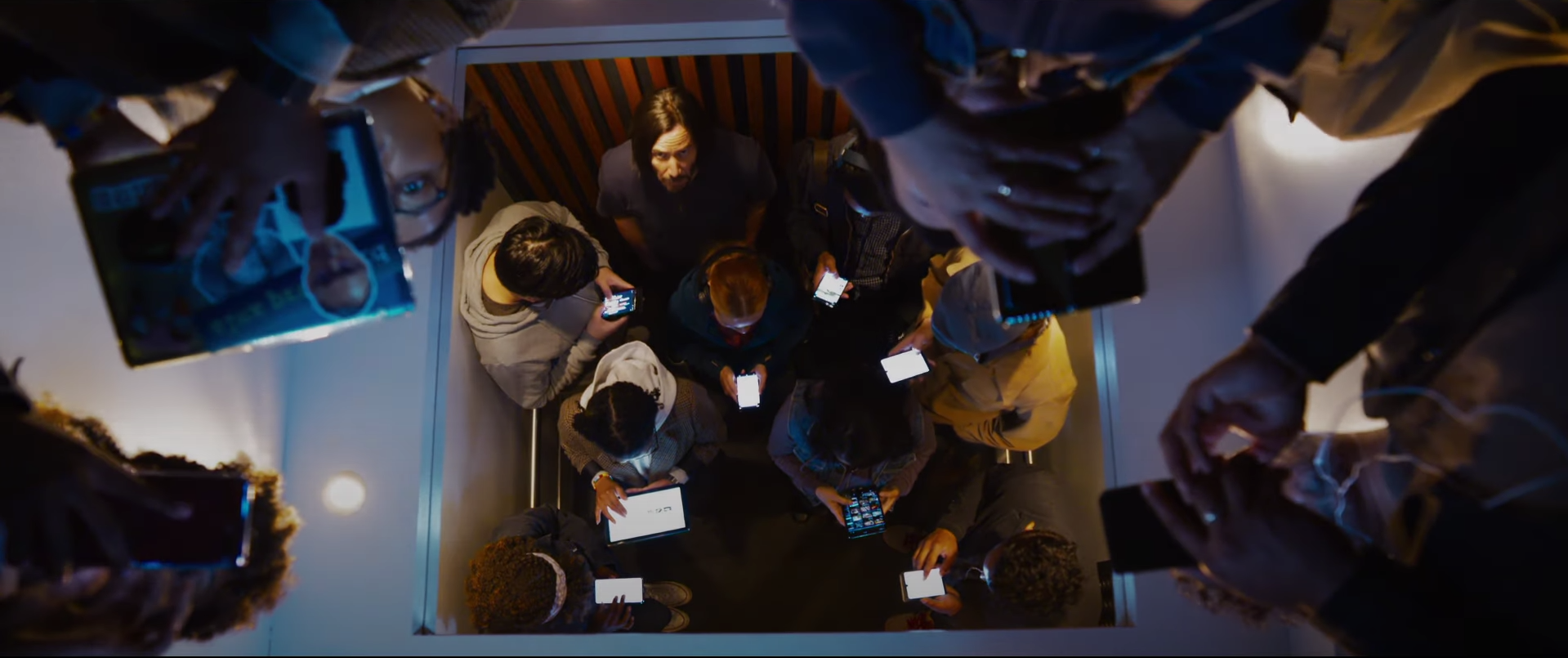Even after the trippy and action-packed trailer dropped our first look at this new era of The Matrix, the fourth installment in the cyberpunk film franchise remains an unsolvable puzzle box. We certainly tried to decode the trailer for answers in our breakdown and analysis, but there’s so much that remains a mystery. How are Neo and Trinity back from the dead? Is this supposed to be a new version of the Matrix? Was Zion just another simulation all along? Why is there a new, younger Morpheus?
While director and co-writer Lana Wachowski isn’t giving away any of the answers, she did join fellow Matrix Resurrections writers Aleksandar Hemon and David Mitchell at a panel at the Berlin International Literature Festival to share what it’s been like returning to this beloved universe after so many years. And one of the best insights from Wachowski gives us a clue as to the themes and messages the new movie is set to tackle.
Wachowski revealed that star Keanu Reeves, who reprises his role as Neo, had a very interesting reaction after watching The Matrix Resurrections, one that hints at how the sequel rhymes with the original trilogy but also pushes the franchise forward.
“We showed the film to Keanu, and he really was blown away by it, and he said something that was typically Keanu, where it’s incredibly insightful,” Wachowski said. “He’s just sort of sitting there, and you don’t expect some incredible revelation to come out of him at that moment, like casual brilliance just kind of rolls off of Keanu. And he was just sitting there, and he goes, ‘Twenty years ago you told a story in which you described the coming twenty years and the problems of the nature of digital, virtual life and how it was going to impact us and how we think about it, and gave us a frame to be able to think about it and talk about it. And you took the same character and the same stories and the same stuff, and somehow you made it about the next twenty years.’ And he was like, ‘How did you do that?’”
Indeed, when it premiered in theaters in 1999, The Matrix was hailed as an innovative and forward-thinking cinematic revelation, not just for its advances in filming techniques but for the way it imagined the future of the internet as a digital space where people could have a life completely separate from the real world. Just look at the “residual self image” (or avatars) we create for ourselves on Twitter, Reddit, and/or Instagram today, or how these days things that are born on the internet can seem as real (or more real) to some users than those happening in the real world. The Wachowskis created The Matrix to discuss, among many other things, the way the internet could be one day used as a way to distort reality. It’s pretty clear now that they weren’t far off about the late 2010s/early 2020s…
But how have Lana Wachowoski, Hemon, and Mitchell updated this social commentary to tackle what the digital world might look like in the 2040s? The trailer for The Matrix Resurrections seems to look inwards, at reflections in mirrors that are slightly off, at the possibility of simulations inside of simulations, at an overly medicated central hero. Clearly, for these writers, things are only going to get more dystopian. If I had to guess from the context clues in the trailer, the movie seems to be getting at the way living an increasing amount of time plugged into a fantasy digital world will create a bigger disconnect within ourselves, creating a deeper crisis of identity between what humanity experiences digitally and in the real world, especially as tech companies figure out new ways to keep us consuming and engaging with more content online. It’s likely no accident that an evil tech corporation known as “Deus Ex Machina” seems to be the central villain of the movie.
You can watch the full panel below:
Wachowski also described the way returning to The Matrix helped her grieve the death of her parents, saying it was a healing experience for her.
“My brain has always reached into my imagination and one night, I was crying and I couldn’t sleep, and my brain exploded this whole story,” Wachowski said. “And I couldn’t have my mom and dad, yet suddenly I had Neo and Trinity, arguably the two most important characters in my life.
“It was immediately comforting to have these two characters alive again, and it’s super simple. You can look at it and say, ‘Okay, these two people die and okay, bring these two people back to life and oh, doesn’t that feel good?’ Yeah, it did! It’s simple, and this is what art does and that’s what stories do, they comfort us.”
The Matrix Resurrections opens on Dec. 22 in theaters and on HBO Max.
